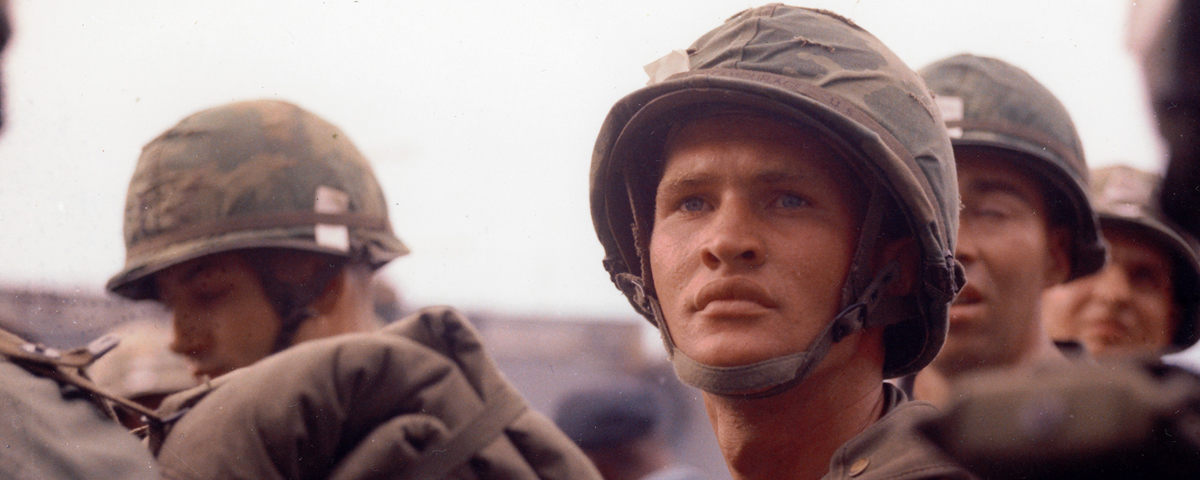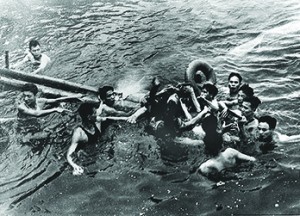Donald Trump’s much ballyhooed comment about U.S. Sen. John McCain’s heroism deserves mention only because it illustrates how confused we are about words like hero, bravery, warrior and coward, and how loosely we define them.
Acts of heroism are different from acts of bravery. People who are heroes go beyond what is expected of them, risking life and limb to benefit others. There is an altruistic aspect to heroism. All acts of heroism require bravery, but many acts of bravery are not acts of heroism because they are done for self-serving reasons. An excessively ambitious commander can exhibit bravery, and even be awarded a medal, but he often does so at the expense of his troops, rather than for their benefit. Those who serve under him would probably never denigrate his bravery. They might, however, denigrate his character and secretly wish that his next act of bravery would be his last. Any grunt who does his duty in a firefight is acting bravely, but he won’t be considered a hero until he does something exceptionally brave to benefit his whole group.
It has become popular to call everyone who serves in the military a hero. This trivializes the word in the same way we trivialize the word champion by issuing everyone a trophy at the end of the season. Most people who serve in the military feel embarrassed being called heroes. This is because most people in the military are not heroes. They are, however, warriors.
Warrior is a word that conjures images of Conan and Cochise, although few serving in today’s military will ever be warriors like Conan and Cochise. A warrior is a person who is willing to risk his life, who is willing to inflict violence on others and who chooses a side in a fight, but that person may never have to perform an act of bravery. For example, someone who pushes the button to fire a cruise missile from a ship hundreds of miles from the front lines is as much of a warrior as the grunt who is in the thick of the fight.
Perhaps some people can’t imagine that the button pusher would be called a warrior, but the history of warfare shows an increasing distance between a fighter and the enemy. Medieval knights thought crossbowmen were cowards and criminals who should be hanged because they shot from beyond the range of swords and lances. Imagine what those knights would think of the Marine grunt, a quintessential warrior in our eyes today, who attacks with modern rifles or even airstrikes.
To be sure, the grunt endures harsher conditions and greater risks in actions that require grit and bravery far above what the button pusher experiences. But the button pusher is no less a warrior. Definitions need to change with changing technology. When the crew of an Air Force C-47 gunship, nicknamed Puff the Magic Dragon, saved our asses in Vietnam, I never begrudged them their distance from the enemy or their warm showers.
Everyone who serves in the military is a warrior, and that should be accolade enough. But an honorable word has been corrupted with overuse: road warriors, warriors for peace, environmental warriors, warrior power gym equipment and the like.
Now, to Trump’s comment about McCain, a Navy aviator who spent almost 5½ years as a prisoner of war in North Vietnam. During a July 18 forum in Ames, Iowa, the Republican presidential candidate said this about McCain: “He’s not a war hero. He’s a war hero because he was captured. I like people that weren’t captured.”
Nearly all acts of heroism arise from situations caused by stupidity or bad luck. Medals of Honor result when a group has the bad luck of a grenade landing in their hole and someone sacrifices his life to save the others. McCain had the bad luck of being shot down and taken prisoner. That is not what made him a hero. How one is thrown into his or her “hero’s journey” is beside the point; how one behaves on the journey is what’s relevant.
McCain is a hero because of the way he conducted himself while a prisoner. He endured torture that he could have avoided by telling secrets that would have hurt his fellow aviators. He refused early release, which his captors offered because McCain’s father was a top Navy commander. Accepting an early release would have violated the POW code of conduct, which was designed to prevent the enemy from using prisoners for propaganda and to help POWs endure their terrible ordeals by assuring them that rank or privilege would not be a factor in determining the time of their release or the amount of torture they had to withstand. McCain says that he wasn’t a hero, but was with a group of heroes. Well, he fits my definition of a hero.
One word used to contrast heroes from others is coward. It has become popular to call suicide bombers cowards. I disagree. They behave bravely. I certainly wouldn’t have the guts to do what they do. They are not, however, heroes. Suicide bombers are willing to target innocent civilians who are not even their enemies. No one on their side is in any immediate danger, so their brave act could only tortuously be construed as being done to benefit others. One could even argue that looking for a reward in heaven is actually self-serving.
Heroes act as brave individuals and that distinguishes them from others in a group, but they remain part of the group because they act in its best interest and help its cause. People who spend their lives acting for themselves and not for others might find it difficult to understand what heroism really is and get it wrong when asked to comment on it in an interview. All of us, however, need to be mindful of how we use “hero” and other words associated with it. H
Karl Marlantes, a Marine Corps first lieutenant in Vietnam, received the Navy Cross for “extraordinary heroism” while leading an assault on enemy bunkers. He is the author of the novel Matterhorn and the nonfiction What It Is Like to Go to War.
Originally published in the November/December 2015 issue of Vietnam magazine. Photos courtesy of Bettmann/Corbis and Everett Collection/Alamy.






